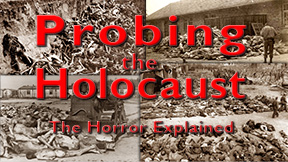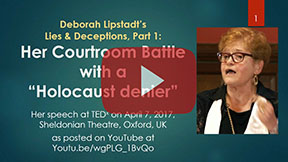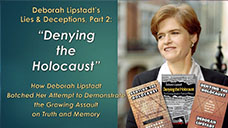“Do you know already the latest fashion? Read and forget!”
Erich, a friend of our young student, has found a new method of quickly reading lots of books. It is early summer 1989.
“Just read them and then forget about it. No contemplation, no discussion.”
“What do you mean by that? If I think I can forget about a book after I read it, I’d probably wish I wouldn’t have read it in the first place.”
There is something intriguing with Erich who crosses all lines of smart reasoning and loves to challenge all sorts of taboos just for the sake of it. One day, while sitting in a Frankfurt street café, he goes rampant again:
“Hey, have you ever tried to comprehend the fascination of fascism? I just read this book ‘The Fascist Style’ by that Swiss political scientist, and I think it is awesome.”
This one is a bit too much of challenging a taboo. The young student feels like he needs to be outraged and walk out of this café. But he tries to keep control. So he puts up a smile and listens to Erich’s latest “read and forget”. A few weeks later, Erich wants to convince our young student that using drugs is an experience everybody should have had at least once. This time the young student does not just sit still, but gets in an argument with Erich. But at least Erich forces him to come up with some good reasons why one should rejects drugs, turn down ‘love for money’, oppose fascism, and why idealism is good. Our young student loves the way Erich makes him rethink his prejudices and paradigms.
“Hey, you should read this book on the Holocaust by the former communist Paul Rassinier. During the war he was a French resistance fighter, got caught, and sent to several German concentration camps. After the war he started criticizing his co-inmates’ exaggerated stories. Awesome!”
Another one of those ‘read and forget’ books, the young student thinks to himself. But Erich keeps pressing:
“While I was in the Bavarian libertarian party, we young people read and discussed this book thoroughly. You really got to read it!”
“And forget about it thereafter?”
“No, I mean it. You are interested in history, right?”
“Yes, but not really that kind of depressing stuff.” “Just take it, and you can even keep it, because I would probably throw it away.”
Read and throw away… So our young student takes it.
Change of Scene
“First I did not even want to touch this book. Who wants to voluntarily read a book on the Holocaust? I didn’t. Digging in the heaps of corpses of my ancestors is nothing I consider to be a pleasant activity.”
Our student is visiting his parents, and now he sits on his sister’s bed, together with her, at candle light late in the night. They have their regular sibling session. First she told what has been going on in her life during the last weeks, and now he pours out what is in his heart, and she listens.
“My friend Erich was a real pain in the ass. And when he threatened to throw away this book, I finally took it. I simply cannot stand the idea that anybody would throw away books.”
His sister gets a little nervous. She is used to a lot from her brother. He is a radical thinker, always trying to get down to the roots of a problem. But she senses that this root might be a bit too troublesome to get digged out.
“Anyway, I start reading it, and the further I get, the more excited I become, no, let’s say angry, really upset. I mean, this author is a Frenchman. He was a communist before the war, joined the French resistance movement during the German occupation and got caught. He can be happy that he wasn’t shot. After all, international law allows for partisans to get shot. But the Germans sent him to a concentration camp instead and let him work there. He survived, and after the war he was a member of the French national assembly for the socialists, and a geography and history teacher by profession. So what would you expect such a Holocaust survivor, or Nazi victim, or what ever you want to call him, what would you expect him to write about the Holocaust?”
“I don’t know. The usual stuff, I guess. His ordeal, the crimes he witnessed, and perhaps a historical analysis of the entire episode.”
“Well, he doesn’t go into his personal experience, but he makes a historical analysis of the entire episode. And guess what? He says it is all exaggerated, distorted. Many witnesses lied, others were tortured by the allied personnel, or had other ulterior motives not to be truthful. I do not even remember all the details anymore. He claims he isn’t sure if there were any gas chambers at all, that he has been trying for years to find a single reliable witness, that he travelled all over Europe to speak with any witness, but all in vain, since they were all talking about hearsay. He also concludes that there were probably only some one to two million Jewish victims.”
“Only?” interjects his sister with raised eyebrows.
“Ah well, the word is not appropriate, I know, but to make a contrast to the usual figure of six million.”
“Right, but does it matter? I mean, one million innocent victims murdered? Can you imagine a row of one million victims lined up, ready to get killed,” his sister insists.
“Alright. You know, it is kind of funny. I remember that just three years ago I had this exchange with this right-wing student. And now I kind of feel like I argue as he did. It is a strange feeling. I wonder how it all comes.”
“Did that student argue with that book of whatshisname as well?”
“No. At least I do not remember. Perhaps that is the solution to this riddle. This radical student I would never have taken seriously. It was so obvious that he had a political agenda. You simply do not listen to so-called ‘Nazis’ when they come up with alleged arguments against the Holocaust. That would be like listening to the devil trying to argue that hell is a nice place.”
He stands up and starts walking around in the room, pondering, trying to focus.
“I think the most important fact of this book is not even its content. It is the author. Which communist, anti-Nazi partisan, former concentration inmate – and a historian on top of it – would come up with such an opinion if he did not have very good reason for it?”
“It sure would be an outrage if he were right.”
“See, that is why I got angry. I mean, why is it a problem when it turns out that ‘only’ three millions died, or even ‘only’ one million? If this would be only about the correction of an honest mistake made by historians, so be it. But there is more involved.”
“You mean money?”
“Well, no, I wasn’t thinking about that. Sure, money, too. Reparations. But the point is that any other mistake in any other field of history or in the sciences gets corrected when its spotted. But here all hell breaks loose when somebody does only suggest that something might need some correction. It’s all political. They have made politics with this for 45 years. And may be, as it looks like if you believe this author, it was wrong politics, at least partly wrong. And that makes me angry.”
“So? And what is going to happen next, now that you are angry?”
He laughs out.
“I don’t know. My anger doesn’t lead to anything, I guess. What can I do? I do not even know if this author is right. How am I supposed to find out? I mean I am just a small student of chemistry trying to get my masters thesis together. My performance in history at school was miserable at best. I have neither the skills nor the resources to check anything of what is claimed in this book.”
“So perhaps you should have followed Erich’s instinct and thrown the book away?”
“Yeah, perhaps I should have. Well, now I read it, and I am angry.”
“The best might be just to put the book in your shelf and forget about it. You don’t normally take other books you read that seriously, do you?”
“That is true. I guess you are right. I should just take it as another, an interesting maverick point of view and leave it at that.”
It takes a few weeks, but his anger finally fades out and the book stands forgotten in his bookshelf. The affair is shelved.
Change of Scene
In those days, the young student likes to make long lists of books that he would love to read. Most of his money is spent on books, though he does not have a lot, since he is just preparing his master thesis. Many of those books are about German history, but an awful lot also about sociology, politics, a bit of philosophy asf. A few years ago, to one of his birthdays, his mother had given him a book that was on his list. A Swiss political scientists writing on the topic of how the Germans try to come to terms with their past, and how this initially moral impulse got more and more distorted, corrupted, a weapon of intrigue in the daily political struggle. The mere fact that the author was writing from the remote perspective of a neutral Swiss citizen made it so convincing for him. What an excellent and unsettling analysis this was!
Now, in late summer 1989, our young student learns that the same author has published a new revised edition of this book, and he thinks that he needs to have it. So he buys it. In this edition, the book focuses much more on the downside of this “coming to terms with the past”. It gives many examples of how the writing of history has been intentionally distorted or outright forged in order to serve as a weapon in the power struggles within Germany’s society – or even from without Germany. And then our student comes to page 225: “The ‘historical revisionism’” Now what does that mean? Our young student has no idea, so he reads on. But while reading it, his breath almost stops, so outrageous is what this author has to report, and so far-reaching are the consequences if he were right:
“Imagine a book to appear which tries to prove with scientific and technical arguments that no guillotines ever existed during the French Revolution.” Alright, who cares? Let them publish such books and fight over it.
But the book caries on: “In 1988, something similar happened. In Canada, a German-Canadian was on trial for the second time for statements about modern history which deviate immensely from the view generally held today. A circle of friends wanted to assist him by preparing an expert report.” aso., asf. To make it brief:
Imagine a book to appear which tries to prove with scientific and technical arguments that no gas chambers ever existed during WWII. Alright, who cares? Let them publish such books and fight over it. Wait a minute! Who changed that sentence?
So there our young student was sitting with this book in his hands which tells him about an alleged expert report of a American specialist for execution technology – isn’t it amazing what kind of experts the USA has to offer? – claiming with technical arguments that there were no gas chambers in Auschwitz.
“Shit, now it starts all over again. I had just forgotten about this Frenchman’s book, and now this. What is going on here that I get so much of this stuff on my table these days?”
He hates when books shake his confidence in the truthfulness and general decency of his world. And this one is a particularly bad example, since it comes up with a chemical argument that he can understand, or at least try to understand:
“Basically no traces of cyan gas, which was allegedly used for the mass murder, could be detected in samples taken from wall material of those homicidal gas chambers, whereas in other locations, exclusively used for delousing purposes, but not for murder, huge amounts are detectable.”
Wasn’t chemistry the field our young student was just about to finished his master thesis? He felt dizzy after reading that.
“What kind of a ‘cyan gas’ could that be that can still be found today, over forty years after the fact?” he wonders. He just doesn’t get it. Having a master degree in chemistry and not understanding what this author was talking about made him mad. So the next day while working in the lab on his thesis, he goes to the library to open a chemical encyclopedia to figure out what this is all about:
“Zyklon B: hydrogen cyanide absorbed on diatomaceous earth or on starch. Used as an insecticide since 1920 until today, also abused during the Third Reich to kill innocent victims in gas chambers.”
So? How can a gas remain in walls for over 40 years? It just doesn’t make any sense. But fortunately, this Swiss author gives an address where one can order this ominous expert report. So he orders it, and a few weeks later, he has it in his hands, in English, the language he hates so much and cannot really master. He starts translating it sentence by sentence, trying to understand what this report says. By so doing, he finds many factual errors, but he also starts to understand: the chemical compound analyzed is not cyan gas, but Prussian Blue, or iron cyanide.
“Nice. But how the hack does hydrogen cyanide turn into Prussian Blue?” The next day he is off to the library again, and a brief review of the forming process of Prussian Blue refreshes his memory.
“Oh, that is embarrassing. First semester stuff. And you want to be called a certified chemist in a few weeks and didn’t figure that out yourself?” he chides himself. But at least he has now an idea about what this expert report is so amateurishly talking about.
Change of Scene
The master thesis is done, and while waiting to begin his one year lasting compulsory service at the German Bundeswehr, he receives an invitation by a student buddy who gets married. As athletic as he has become, he rides there with his bicycle. The wedding is like a dream, particularly because of his buddy’s nice who is, like our student as well, all excited about this wedding and the prospect of getting married herself, later, much later, sometime… She is just gorgeous, barely 18, and such a dedicated dancer, focusing only on him, and he does not see anything else anymore of this wedding. As if it were their wedding. Her parents are pleased to see a future PhD chemist courting her daughter, and so feelings go their way.
Our student has to go to the army for a year, so writing letters is the only way to keep in touch with this gorgeous high school girl. Also, he has to find a new professor for his PhD thesis, since his old supervisor retired. So he applies at various top-notch research in Germany, one of them in Stuttgart, where a certain high school girl happens to live…
Change of Scene
November 1989. A medical officer holds a lecture in front of the draftees, introducing them to the problems of ABC warfare and basic understandings of epidemiology. After the end of this lecture, our student approaches the medical officer:
“I found it interesting how you defined an epidemic and which techniques are to be used by our law in order to contain such epidemics. If I look at what you taught us, shouldn’t this law be applied to AIDS?”
“Theoretically yes, but that cannot be done.”
“Beg your pardon? We have an epidemic according to the definition of the law, and nobody cares to enforce the law to protect the population?”
“You cannot do this for political reasons.”
“What kind of political reasons can possibly force the government to break the law and jeopardize the entire population?”
“We have these terrible history of the Third Reich. Homosexuals were persecuted, and people were herded together in camps to prevent and contain epidemics. And since AIDS is still seen primarily as a homosexual phenomenon, though it is wrong, there is no way anybody could enforce the law. The Holocaust prevents us from doing what he otherwise had to do.”
“So what you are saying is that because of what happened half a century ago, you rather break the law today, neglect your duty as a physician, and expose the population to an AIDS Holocaust?”
“There is no way we could enforce this.”
In the meantime, millions are dying in Africa, and nobody took are takes any containing measures. The Holocaust prevents us to prevent a Holocaust. How stupid can it get?
A few weeks later, during a maneuver exercise, our student pulls his lower back muscles so badly that he has to stay in bed for almost a week. His friend Erich comes and visits him, brings him a load of some twenty books so his friend can keep reading. In one of the book, a professor for sociology deals with the demographical development of the German people.
“If the tendency is not turned around, there will be no German people left at the end of the 21st century” he summarizes his paper.
“All positive population politics is rendered impossible because Hitler did positive politics in this regard as well. And because all modern politics considered good always have to do just the opposite of what Hitler did – even if Hitler’s actions were to be judged as having been successful and positive in isolated cases –, only a miracle can prevent the German people from getting extinct in another century.”
“This Hitler crap makes me sick”, the sick student soldier mumbles to another soldier lying in the bed beside him.
“Pardon?”
“I mean, everywhere I look in German politics, where there are real big problems, nothing gets done because everybody is sitting like a paralyzed rabbit in front of the Hitler-snake. I feel like I was born and raised in a nut house.”
The other solders gazes at him in non-understanding, so our student soldier gives it up and continues reading.
[:]






